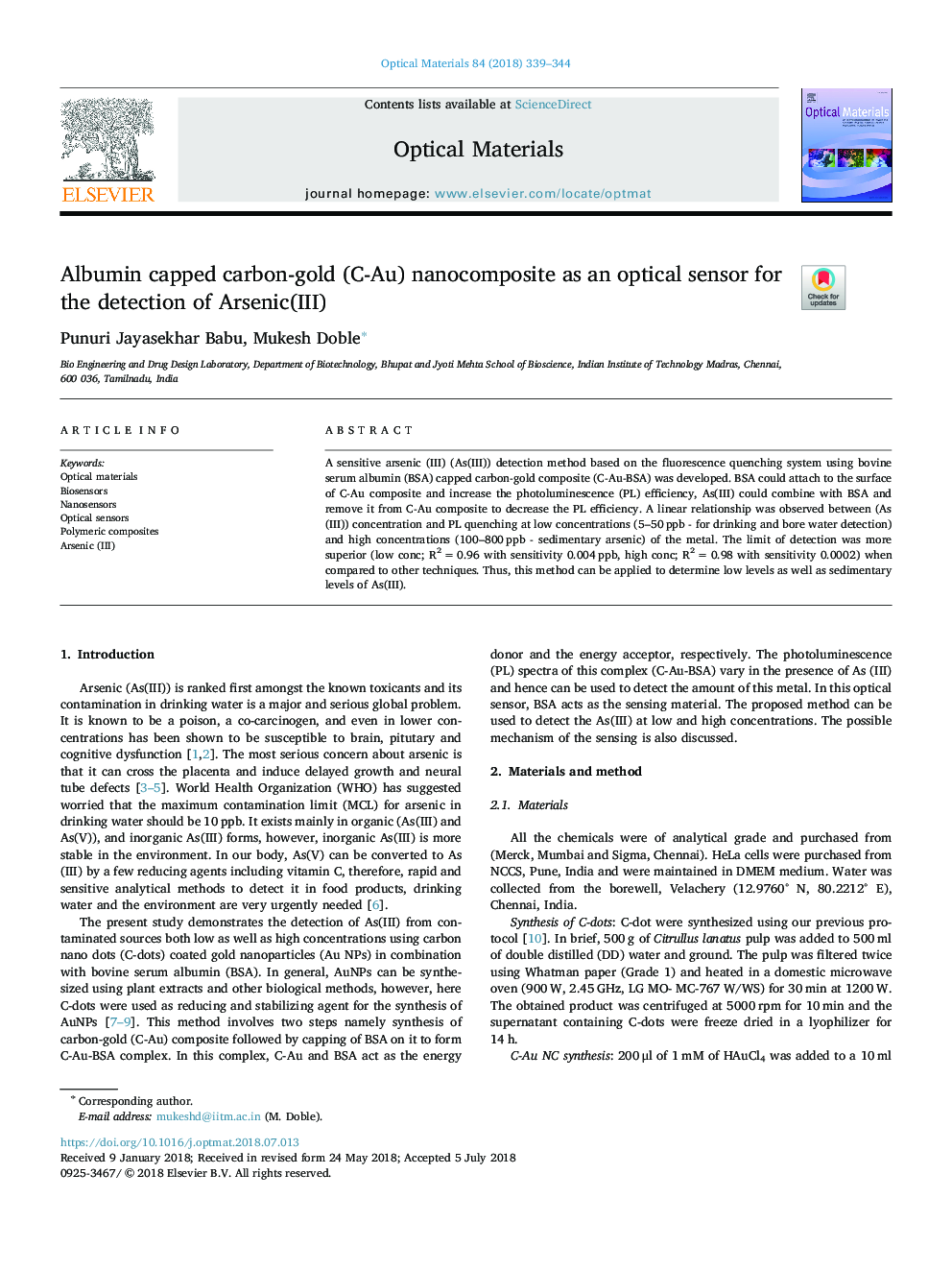| Article ID | Journal | Published Year | Pages | File Type |
|---|---|---|---|---|
| 7906288 | Optical Materials | 2018 | 6 Pages |
Abstract
A sensitive arsenic (III) (As(III)) detection method based on the fluorescence quenching system using bovine serum albumin (BSA) capped carbon-gold composite (C-Au-BSA) was developed. BSA could attach to the surface of C-Au composite and increase the photoluminescence (PL) efficiency, As(III) could combine with BSA and remove it from C-Au composite to decrease the PL efficiency. A linear relationship was observed between (As(III)) concentration and PL quenching at low concentrations (5-50â¯ppb - for drinking and bore water detection) and high concentrations (100-800â¯ppb - sedimentary arsenic) of the metal. The limit of detection was more superior (low conc; R2â¯=â¯0.96 with sensitivity 0.004â¯ppb, high conc; R2â¯=â¯0.98 with sensitivity 0.0002) when compared to other techniques. Thus, this method can be applied to determine low levels as well as sedimentary levels of As(III).
Related Topics
Physical Sciences and Engineering
Materials Science
Ceramics and Composites
Authors
Punuri Jayasekhar Babu, Mukesh Doble,
